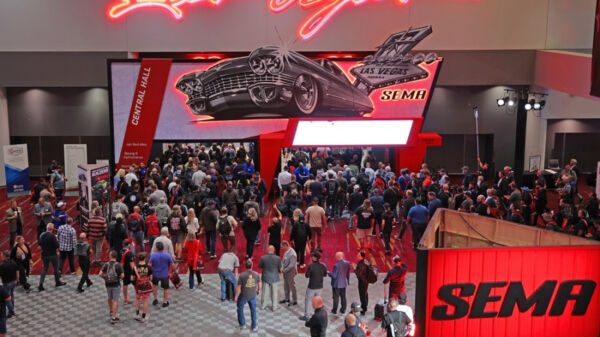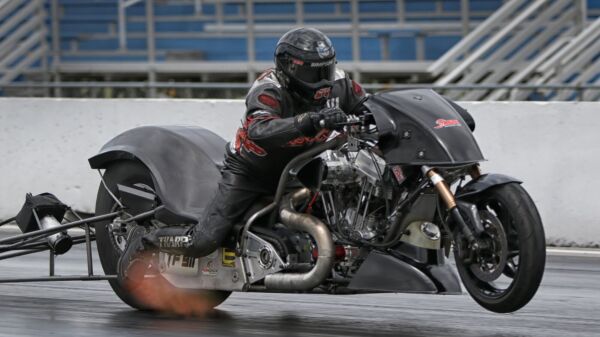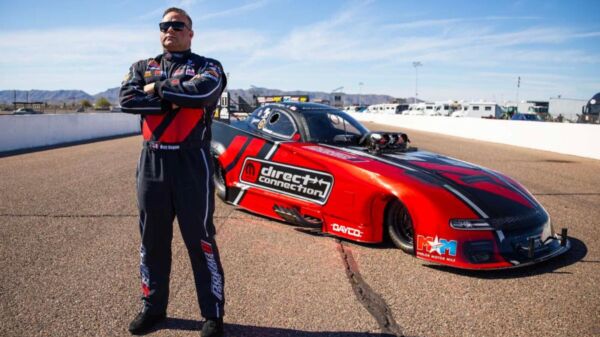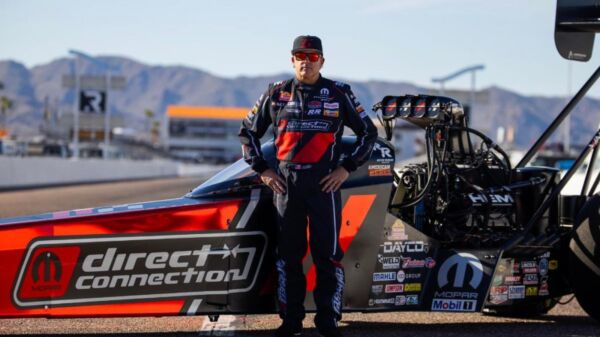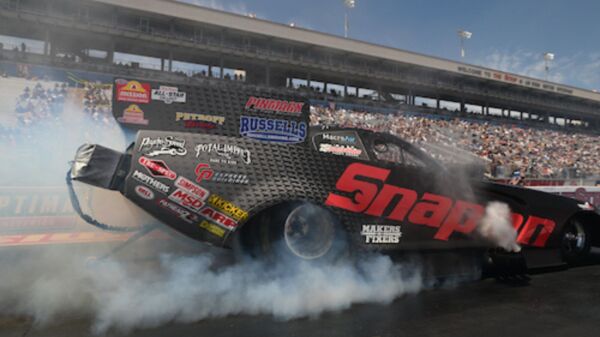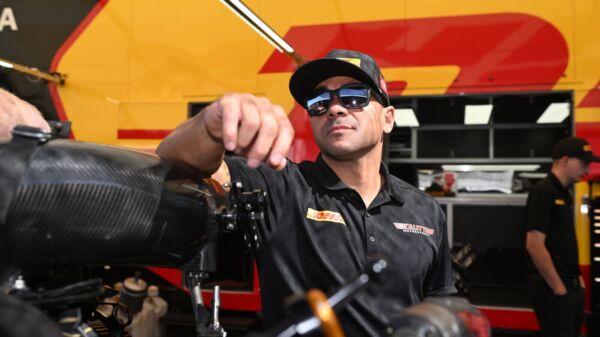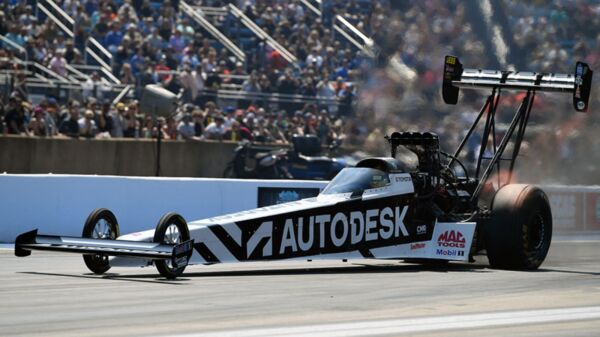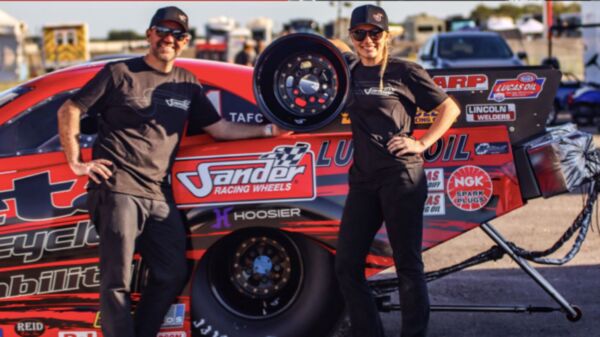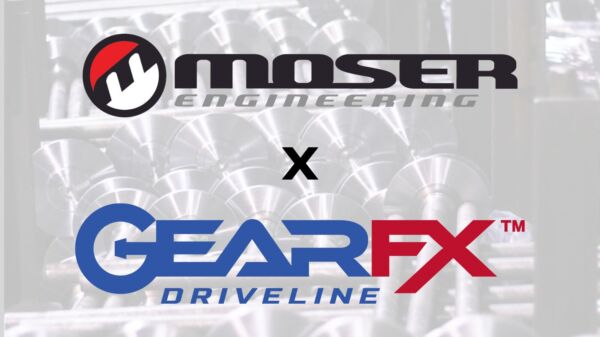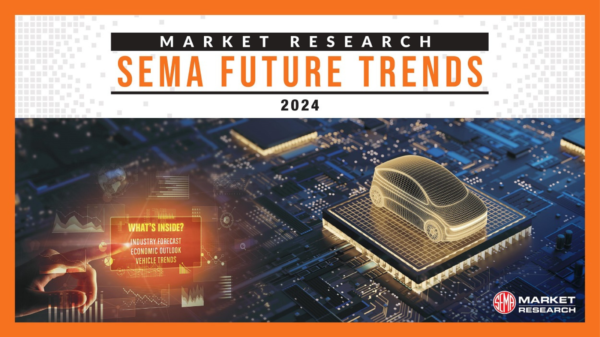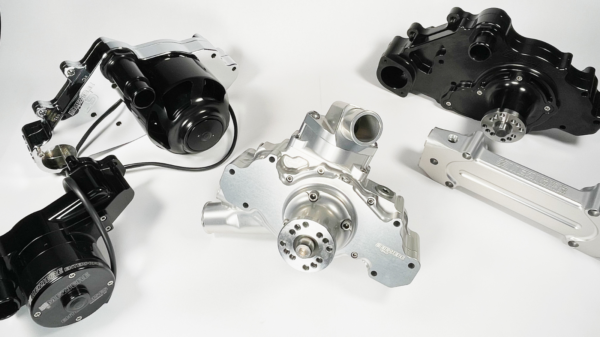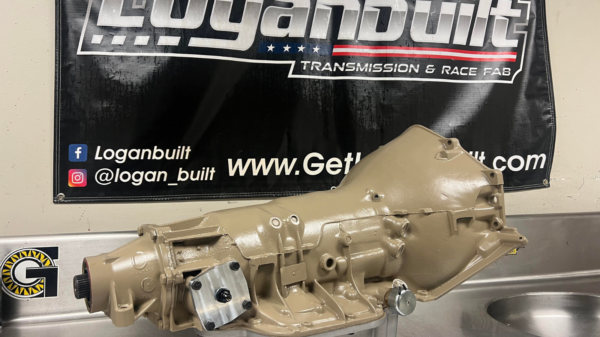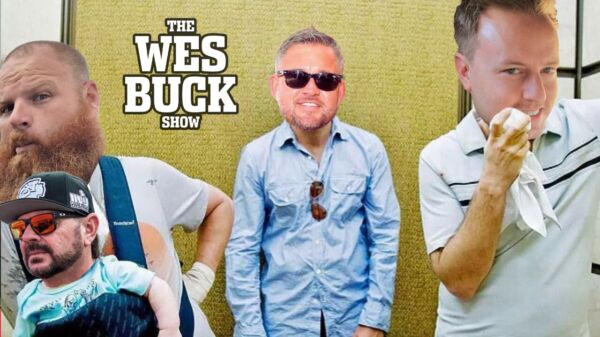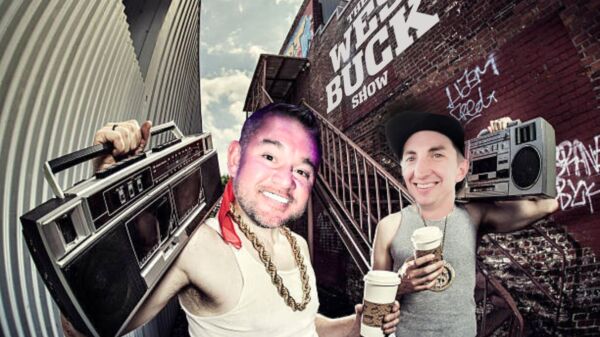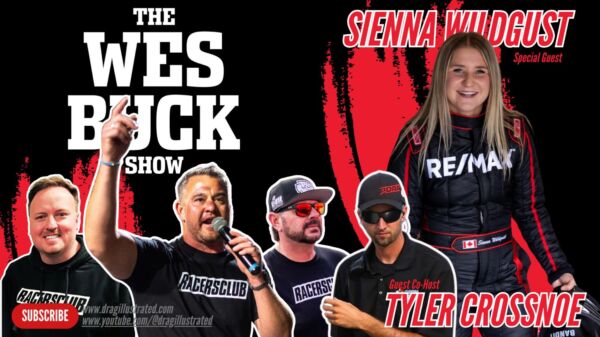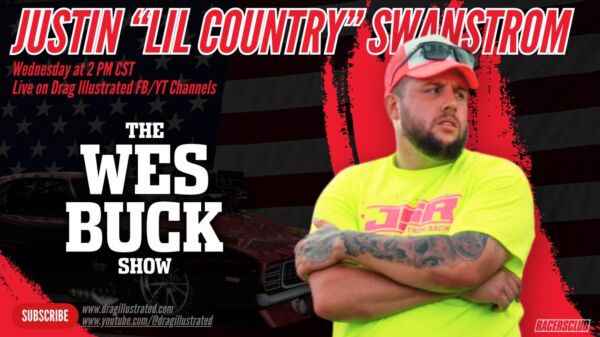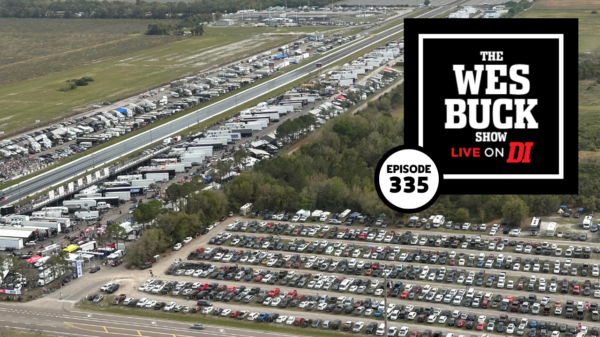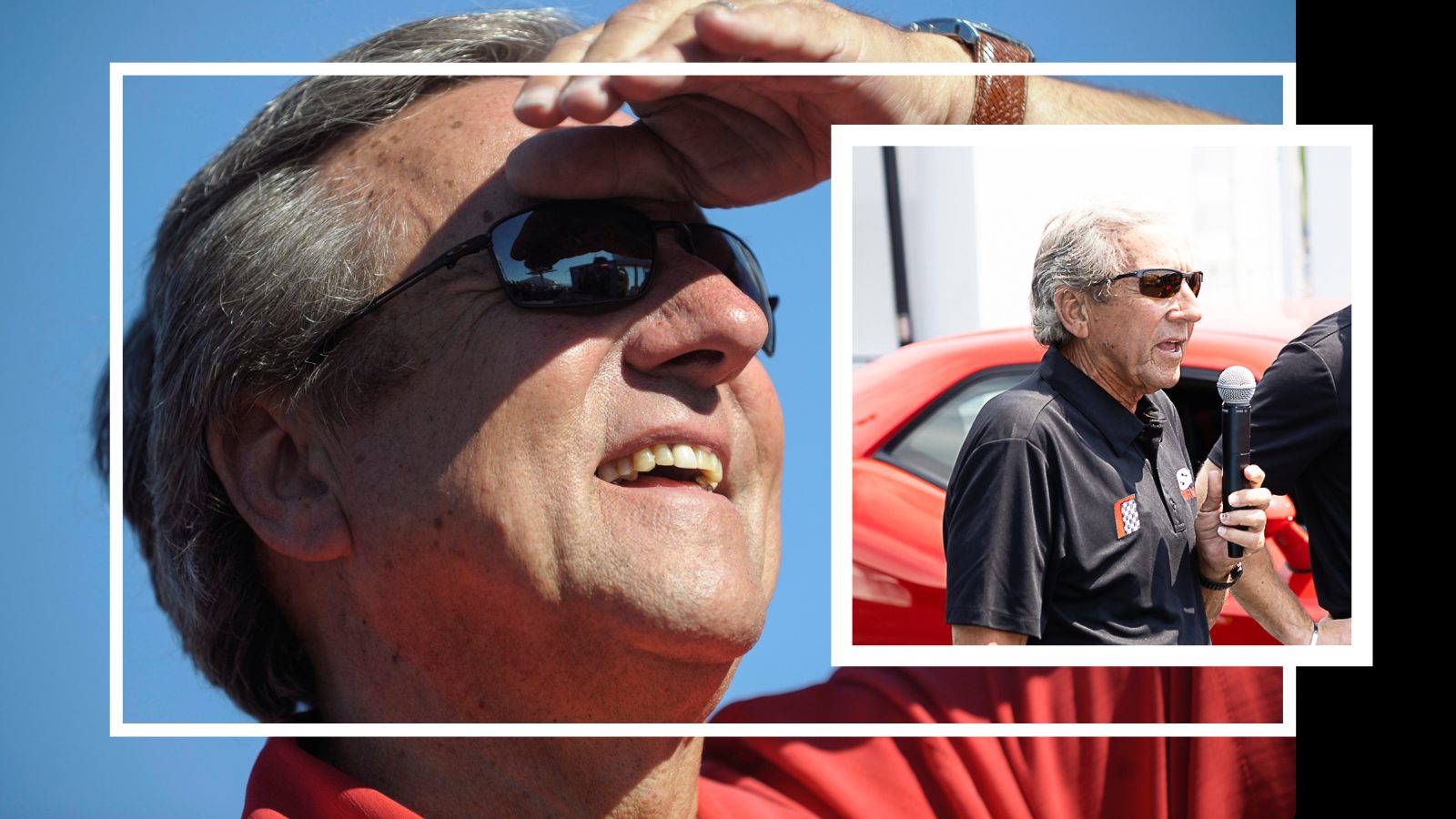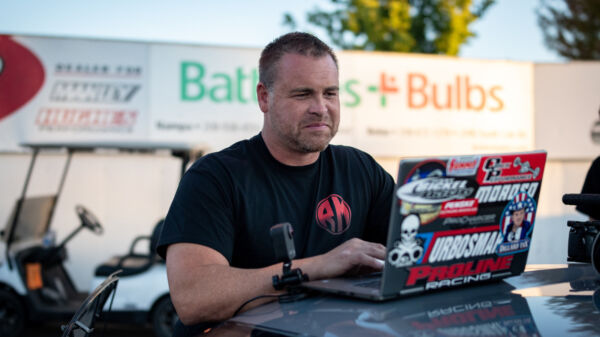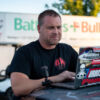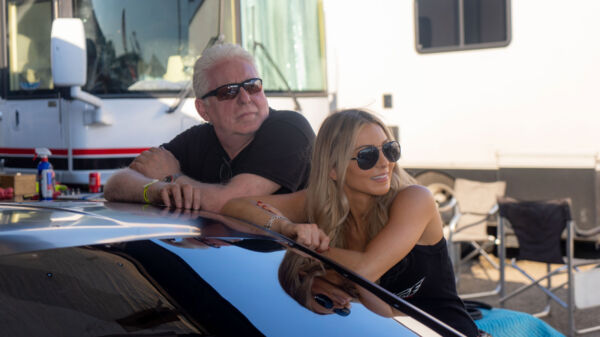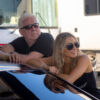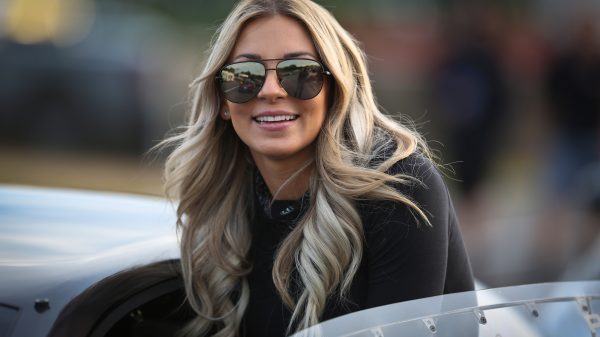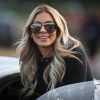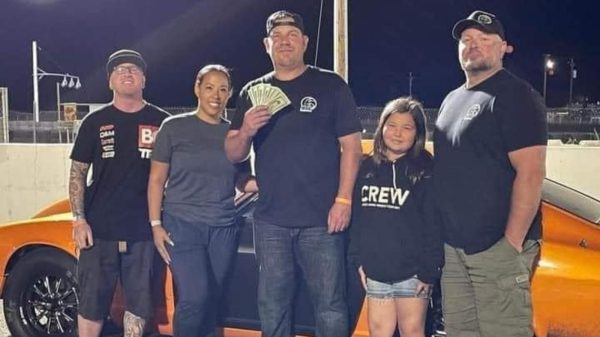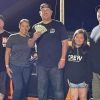The NHRA nitro landscape is changing. Where it was once seen as advantageous to field several teams across the Top Fuel and Funny Car classes, the dynamic has shifted. An independent, single-car team has won the last four consecutive Top Fuel world championships, and many more one-car operations are proving the merits of independence on race day Sunday.
Surprisingly, one of the people supporting the shifting dynamic is team owner Don Schumacher, who once owned around a dozen teams spread across Top Fuel, Funny Car, Pro Stock, and Pro Stock Motorcycle. As times have changed, the Don Schumacher Racing (DSR) stable has downsized from several nitro teams to just one Top Fuel team and three Constant Aviation Factory Stock Showdown cars at the beginning of the 2022 season.

Four of Schumacher’s drivers went off on their own over the most recent offseason. Antron Brown, who announced his intentions to transition to team ownership in January of 2020, launched his AB Motorsports team. Ron Capps, the defending Funny Car world champion, also formed his own team, Ron Capps Motorsports. Leah Pruett and Matt Hagan joined the fledgling Tony Stewart Racing Nitro operation, which fields one Top Fuel entry and one Funny Car.
Schumacher entered the 2022 season with just one Top Fuel driver, the same one that brought him back to the sport in 1998 after a long hiatus: his son, eight-time world champion Tony Schumacher. But things changed there, too, in late July when the team’s primary benefactors, Joe and Cathi Maynard, were named majority owners of DSR’s last remaining nitro team. Now known as Maynard Family Racing/Don Schumacher Racing, the team still operates out of DSR’s sprawling Brownsburg, Indiana, compound using DSR parts and resources, but the Maynard family is largely responsible for the day-to-day operations of the team.
Fans were quick to interpret Schumacher’s relinquishing of his majority ownership stake as a negative, but that isn’t the case, as Schumacher explained in an interview on The Wes Buck Show.
For many years, the nitro classes relied on three individuals who fielded most of the teams – Schumacher, John Force, and Connie Kalitta. The three owners and their teams have feuded on the track for years, but they share mutual respect and appreciation because they realize they need each other for the sport of nitro racing to be successful.
“John Force and I may frown at each other at times,” Schumacher begins, “but I care very deeply about John and his family and his race operation and his race teams and such, the same as John cares about my family, myself, and my operation because we know NHRA needs all of us.”
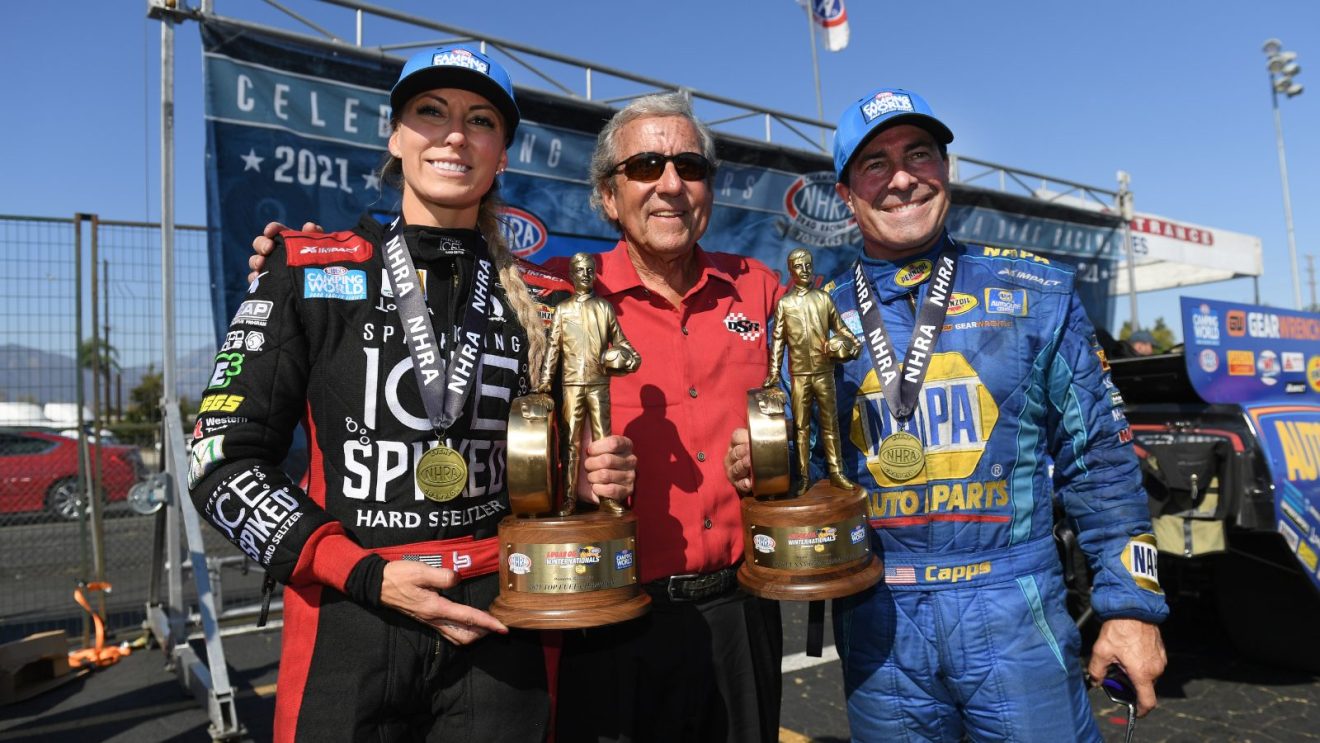 With a handful of Schumacher’s drivers going off on their own to join the numerous other independent team owners and drivers already excelling in the nitro classes, the responsibility to carry the sport into the future has become more evenly distributed. Plus, the infrastructure Schumacher created – the talent, the parts and pieces, the business models – are still there. They’re just operating under a different roof. Or, in some cases, they’re still under the same roof, just with a different owner.
With a handful of Schumacher’s drivers going off on their own to join the numerous other independent team owners and drivers already excelling in the nitro classes, the responsibility to carry the sport into the future has become more evenly distributed. Plus, the infrastructure Schumacher created – the talent, the parts and pieces, the business models – are still there. They’re just operating under a different roof. Or, in some cases, they’re still under the same roof, just with a different owner.
“Many of the people, and many of the crew chiefs out there at one time or another, have worked with me or for me,” Schumacher says. “So it’s a small world out there of very talented people. Fortunately, we now have the Maynards, the Ron Capps, the Antron Browns, the Tony Stewarts coming in to join the Josh Harts, the Mike Salinases, the Torrences, and on and on.”
In this excerpt from the WBS interview, Schumacher reflects on his team’s recent moves, the future of the sport, and his incredible history.
I think this was interpreted widely as “Don’s bailing, it’s over.” I think that was a little exaggerated, right? But it is a shift for you. Could you lay the groundwork or explain to us the inner workings of how this deal with Joe Maynard and family came to be?
Well, let’s go back first to I’ve been in drag racing for a lot of years, since the mid-‘60s. I stepped away to build Schumacher Electric for a number of years during the late ‘70s and ‘80s, and came back in ’98 with Tony in an Exide Batteries car and expanded my operation – as a businessman that has business opportunities would do – to the point that I think I ran 11 or 12 teams one year out at Denver, namely, and part of the balance of the year. But I’ve had a lot of teams under my umbrella for a lot of years. I’m still involved with the Maynards’ team. That’s part my team also. I’m not stepping away from drag racing. I will be out there when I choose to go out there.
There is nothing health-wise that’s causing me to do this. There’s nothing financial-wise that’s causing me to do this. This was done because it’s a dream that Joe and Cathi Maynard have had. They brought that to me earlier this year and I said, “Let’s see if we can figure out a way to accomplish what you want to accomplish.”
I’ll still be involved. DSR and DSR Performance Parts are tied to NHRA Drag Racing for years to come and I will be for years to come. But I always try to do what the right thing is for my sponsors, my team members, and for the sport of NHRA Drag Racing. That’s how the transition at the end of last year put a number of other teams under separate ownership. Is it best to have this mega team owner out there? Yes, I know I’ve been good for the sport of NHRA Drag Racing for a lot of years, but it’s time to transition that.
I’m comfortable with the transition that Tony Stewart has a two-car operation, Antron’s got a one-car operation, looking to expand upon that. Ron Capps has a one-car operation. Now the Maynards have a one-car operation. I’m comfortable with all of those things that have changed my day-to-day responsibility and involvement.
So this has been a very comfortable good transition, and I look forward to it being nothing but the best for, number one, the Maynards, both Joe and Cathi. Two, my employees that are still employed by DSR and the employees that will be under the Maynards, and the employees that are working for Tony Stewart, and the employees that are working for Ron Capps, all of the people working for Antron Brown. All of these people are family members that have been with me for a lot of years. It’s all positives the way I see it. I don’t see any of this being a negative for the sport, for my employees, or the sponsors.
I’ve often pointed at people such as yourself, John Force, Connie Kalitta, as something of the oak beam in the center of the circus tent, right? It’s nice in some instances to see there being more sticks, I guess, right? Do you see this as a positive thing just for the overall scope that there’s interest and apparently opportunity in our sport for people to become independent team owners?
I see it as a real positive. I feel the same way as I continue to look to go forward in the sport, whether that be with the three Factory Shootout teams that I run and an expansion back into the nitro classes, whether that be Top Fuel or Funny Car. I see this last year and a half or two years as a positive for NHRA drag racing.
We do seem to be seeing an influx of some new teams. We’ve seen some new corporate sponsors show up, but we do hear some of the same things, and we’re not back to 20-some odd cars consistently. Do you feel like the environment is good right now for drag racing specifically? I know there’s some uncertainty in the world, but looking at what we’re operating in right now, do you feel like there’s a good climate? What’s your take on the business part of drag racing right now, especially at the NHRA level?
I think everybody would tell you that business is very difficult right now. Are we in a recession? Are we going to be in a recession in ’24? If you talk to the business people, they will tell you that there’s maybe a 20-25% chance that we will go into a recession in ’22, but that percentage goes up to 40-50% in 2023. All of that is a concern and a worry for me business-wise for all of motorsports.
When you’re out there looking for that marketing dollar and sales are not increasing, it’s hard to talk those companies into supporting a multimillion-dollar operation for any type of motorsports. So I have my concerns and my worries with where we’re at in this economy and politically, where we’re at today and where we’re at in the world. So there’s always that concern.
I’ve never really been a pessimist. I really strive to go forward and look to expand it. I mean, I’m looking forward to bringing out another fuel team for 2023, so I’ll just leave it at that and keep working in that direction. You can’t change what has happened one minute ago; you can only work towards changing the future.

What do you make of the platform of NHRA Drag Racing right now? From the action we see on social media, the TV package on FOX and such, what’s your take on where the platform is right now?
I think the sport is in a very good place right now. The headwinds that we have in front of us for the balance of this year and next year is certainly worrisome with what’s going on in this world. But again, put your head down, keep working hard, and don’t worry about those kind of things and you’ll be successful. That’s the way I’ve always looked at things my whole life and I’ve been very fortunate.
I’ve been blessed with being able to surround myself with great people that have done a great job for me. That means every crew chief, every driver, every crew person, every management person, all my hospitality staff, all of that has been a very rewarding situation for me. Forget about the championships and the many race wins that I’ve had out there. Those are all overwhelming numbers. I never imagined that I would win Indy in 1970, no less the amount of NHRA national meets that I’ve won.
It’s unbelievable. Did you ever in your wildest dreams think drag racing would get to the point that it could support something like you mentioned, 11-12 teams, or even one that cost millions of dollars to run here in 2022?
I never imagined that at all. That and I was wore out when I stepped away from the sport in ’74. Wife, children, wasn’t at home at all, racing cars over in England, racing three different teams here in the United States, and it was the right thing for me to do for my life, for business, and NHRA certainly grew and expanded from there.
I mean, the Winston days and all of those things that transpired after I exited the sport didn’t transpire because I exited the sport. Those are steps that took place and we have to look forward to the future. I never imagined that I would win one NHRA national race. When I won Indy in 1970, I was blown away by that.
My crew chief at that point was John Hogan. God bless him, he’s passed away. But we created a lot of noise out on the West Coast the two years before that on the match race circuit, and it allowed me to go to Indy and win the Nationals against Leroy Goldstein and the Ramchargers car. It kind of set the stage for a larger career than I ever thought I would have. I never imagined even coming back into the sport.
There’s a lot going on at Don Schumacher Racing at any given time, far beyond the nitro team operation. Earlier this year, you unveiled your new crate engine. You provide parts to a slew of teams. I know you’re working on developing even more parts. Can you give us just a little bit of an insight as to what all you guys are doing right now there within the walls of the shop in Brownsburg?
I believe we have 35 CNC machines here that are building race parts, defense parts, aerospace parts, parts for the fishing industry. We have a large machine shop operation that’s probably 75,000 square feet right now. We keep pushing the race teams to different areas in the race shop because the machine shop keeps expanding. We have our own fab shop. We build chassis for ourselves and a lot of other teams. We have our own graphics department. We have our own PR department. We probably feed 2,000-3,000 people every weekend at the NHRA races in hospitality. We have a lot of tools in our bag that we use every day and have used every day out at NHRA.
There’s a lot of things that DSR continues to do and will continue to do. We’ll continue to expand in the crate motor business. We’re going to come out with a number of them. We’re looking to come out with other parts for Dodge and the Mopar brand and just continue to expand the foundation that I’ve had with that company.
When I first started my Funny Car operation, it was with the Dodge Charger injected Funny Car. The cars that I drove on the street were different than that, but that was the very first Funny Car that I ever drove. I’m thrilled to still be involved with Dodge today and hopefully continue to build on that relationship and expand within their needs and what we can do here at DSR.

For those that don’t understand, could you explain some of the nuances and the inner workings of those B2B relationships that you brought to this sport? No one is imagining that Don Schumacher Racing is feeding thousands of people a weekend, but that’s a product of these business-to-business relationships that corporate America historically has found extremely valuable, correct?
Correct. Today, you cannot sell a sponsorship based on “Your name is going to be in front of all of these fans at the racetrack this weekend, and we’re going to get you TV coverage, and you’re going to be in magazines and newspapers and on the news.” It’s all really about B2B. How are you going to create more business volume for your sponsor or target the needs of your sponsor?
Like the U.S. Army, they needed recruits. So you need to go to them and say, “I can get your recruit by doing this, that, and another thing.” You can’t go to them and say, “Your name’s going to be on TV. Your name’s going to be seen by all of the people in the stands.” That program was dedicated off of recruiting people that ultimately joined the Army.
You have to do that, whether that be with the U.S. Army or Wonder Bread. The Wonder Bread deal was all about having the truck drivers bringing the store managers out to the races. Because really the truck drivers were the salesmen for Wonder Bread that caused Wonder Bread to be at eye level versus up high or down low on the shelves at the grocery stores. That’s what that whole sponsorship was about. It wasn’t about having a polka-dot-colored race car out there.
Before we wrap up, can we just take a look at all those Wallys sitting behind you? That’s a pretty incredible visual representation of all you’ve accomplished over the years.
There’s a whole other area here in this race shop lobby that is covered with them – 600-plus Wallys we’ve collected over the years. It’s been an unbelievable blessing. I have no idea how it really happened. I put my head down, I worked hard, surrounded myself with great people, they did great things for me and the company, and I’ve been blessed.
This story was originally published on October 25, 2022. 
